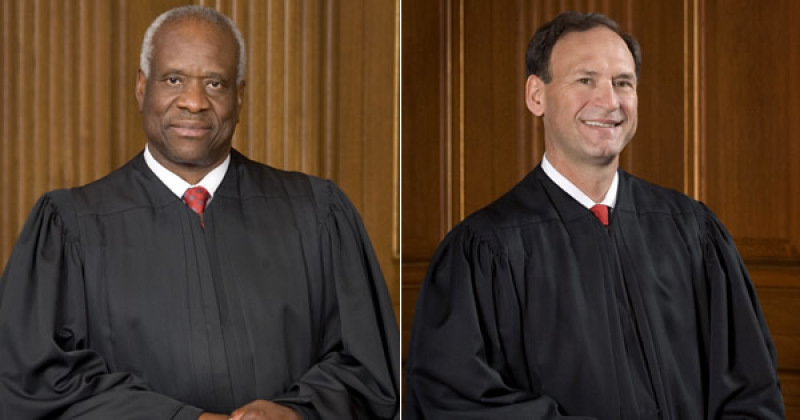
Supreme Court Justices Clarence Thomas and Samuel A. Alito Jr. made an appearance at an opinion delivered by the court refusing to hear an appeal of Kim Davis, a former Kentucky county clerk who refused to issue marriage licenses to same-sex couples.
Kim Davis is a religious Christian who was jailed for 6 days for acting upon her religious beliefs and in turn failing to comply with federal law.
Supreme Court Justices Thomas and Alito said in a statement on the case, "This petition implicates important questions about the scope of our decision on Obergefell, but it does not cleanly present them. For that reason, I concur in the denial of certiorari."
Supreme Court's 5-4 decision on Obergefell v. Hodges in June of 2015 ruled that state-level bans on same-sex marriage are unconstitutional by the 14th Amendment which requires a State to recognize as lawful and license a marriage between two people of the same sex.
"Several members of the Court noted that the Court's decision would threaten the religious liberty of the many Americans who believe that marriage is a sacred institution between one man and one woman," Justice Thomas pointed out that the court predicted a religious conflict subsequent to the Obergefell case.
Thomas continued to criticize the court in a statement, "If the States had been allowed to resolve this question through legislation, they could have included accommodations for those who hold these religious beliefs."
"The Court, however, bypassed that democratic process. Worse still, though it briefly acknowledged that those with sincerely held religious objections to same-sex marriage are often 'decent and honorable,' id., at 672, the Court went on to suggest that those beliefs espoused a bigoted worldview."
Thomas claimed Davis to be one of the first victims of the Obergefell decision and predicts that Davis won't be the last.
"Due to Obergefell, those with sincerely held religious beliefs concerning marriage will find it increasingly difficult to participate in society without running afoul of OBergefell and its effect on other antidiscrimination laws," Thomas warned.


















